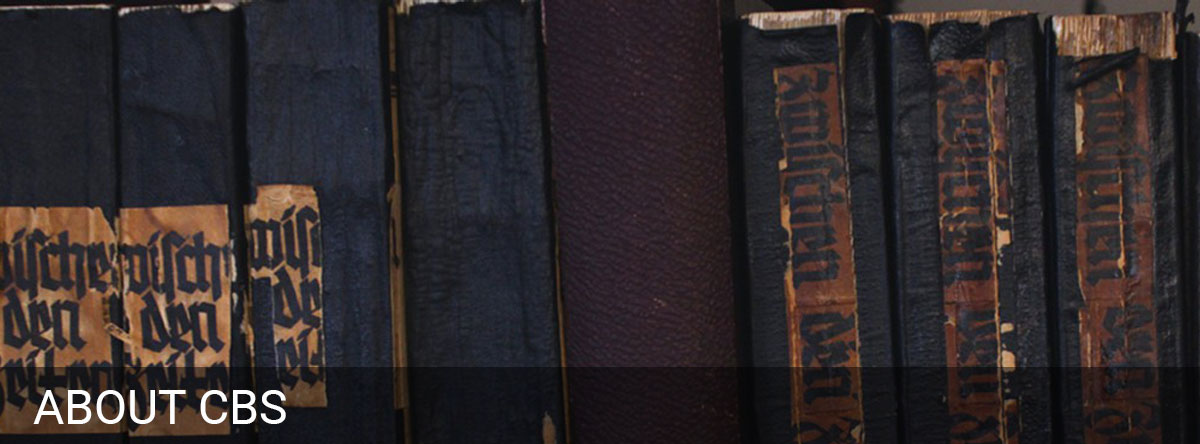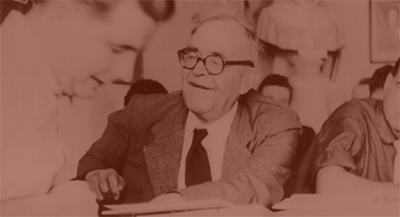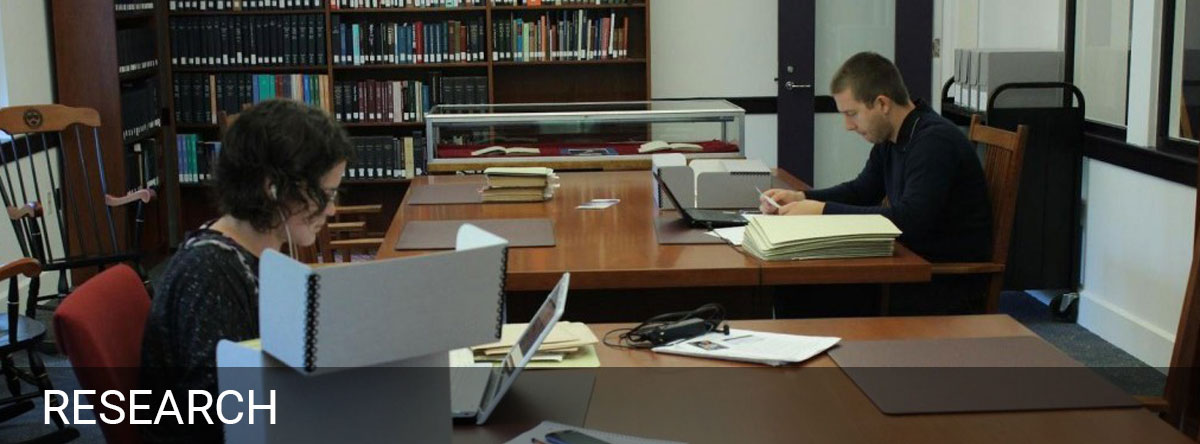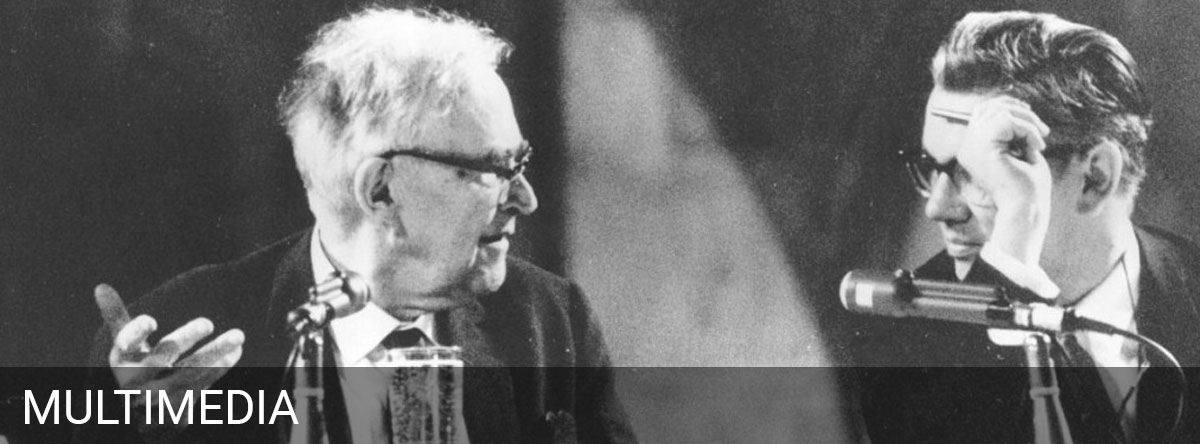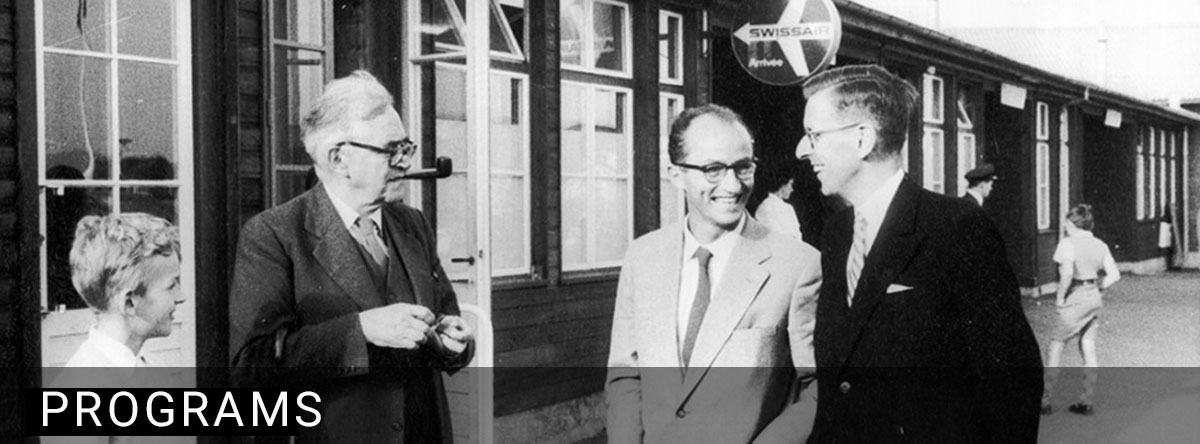
Translators Seminar
The Barth Translators Seminar, a key program of the Center for Barth Studies (CBS), exists to foster the English-language reception of Karl Barth’s literary corpus by providing support and guidance for qualified translators and facilitating the publishing of as yet unavailable Barth resources in English for the academy and the church. The seminar emerged from the Center for Barth Studies’ regular conferences in response to the concern for continual improvement of the quality of Barth translations and the encouragement of new translations. In light of the universally recognized significance of Barth’s work as the premier Reformed theologian of the twentieth century, it is a matter of both urgency and stewardship that his work be made available in reliable translations for the theological work of the church and the academy.
The CBS resources have been invaluable to translators. In its biannual sessions, the Translators Seminar has developed standards for translation, provided expert guidance to active translators, and continues to serve as the material hub of the proposed translation project. The Seminar recently published three English translation volumes with Westminster John Knox Press. The three volumes are the English translations of Barth’s Gespräche, and are published as Barth in Conversation (Volume 1, 1959–1962, Volume 2, 1963, and Volume 3, 1964–1968).
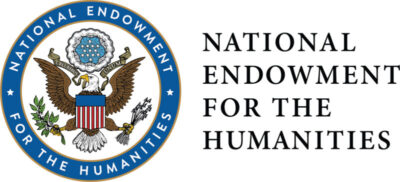
In 2018, the Center for Barth Studies at Princeton Theological Seminary received the Scholarly Editions and Translations Grant from the National Endowment for the Humanities (NEH) to translate into English three volumes from The Lectures and Shorter Works of Karl Barth, 1905–1909, 1909–1914, and 1914–1921. The center received this NEH grant award again in 2023 to translate the next three volumes from The Lectures and Shorter Works of Karl Barth, 1922–1925, 1925–1930, and 1930–1933. These generous NEH grant funds enable the Seminar to meet twice yearly to work together and translate these three volumes into English, allowing for greater translation efficiency. Westminster John Knox Press will publish the English translation of these volumes. The first English translation volume was published in 2023 as The Early Barth – Lectures and Shorter Essays, Volume 1, 1905–1909.
In 2018, the Center for Barth Studies at Princeton Theological Seminary received the Scholarly Editions and Translations Grant from the National Endowment for the Humanities (NEH) to translate into English three volumes from The Lectures and Shorter Works of Karl Barth, 1905-1909, 1909-1914, and 1914-1921. These generous NEH grant funds enable the Seminar to meet twice per year to work together and translate these three volumes into English allowing for greater translation efficiency. The first volume of these English translations in print and digital editions has been published with Westminster John Knox Press as The Early Karl Barth – Lectures and Shorter Works (Volume 1, 1905–1909). Volumes 2 and 3 will be published in early 2024 and 2025, respectively.
Karl Barth became widely known first through his commentary on the Epistle to the Romans (1922) and later through the twelve volumes of his Church Dogmatics (Kirchliche Dogmatik 1932-1967). Even today it is mainly these two works which are connected with his name and his worldwide influence. It should not be forgotten, however, that Barth did not only have an impact on the intellectual life of the twentieth century through these great and massive works, based as they were on the principles of a strictly scientific theology and spanning a wide systematic context, but also through many lectures and essays which were published as newspaper articles, in journals, or as pamphlets. Somewhat similar to the pamphlet literature of the Reformation period, many of them had a considerable effect far beyond the so-called religious circles. Among the best known examples are the brochure “Theological Existence Today!” of 1933—“the most courageous and refreshing statement made and printed in Germany in the last half year” as Thomas Mann, exiled from his homeland, described it in September of 1933 – and the “Barmen Declaration” of 1934 which became the charter of the “Confessing Church” in Germany during the Nazi period and has since been adopted as a confessional document by many churches throughout the world.
These lectures and essays carry their own weight and have their special significance, on the one hand because in them Barth succinctly formulates basic insights and decisions which he unfolds in his books in a broader and more thorough way but also in less easily understandable and accessible form. On the other hand, Barth explains in them the ethical and political implications and consequences of his dogmatics without which an adequate understanding of the intentions of his main works is impossible. He also is dealing here time and again with historical, sociological, philosophical, and aesthetic questions and topics which definitely have a lively importance for the formation and application of his thought but are simply nowhere else addressed directly except in such secondary publications. All these texts are being published in chronological sequence in Section III of the Collected Works of Karl Barth (Karl-Barth-Gesamtausgabe), “Lectures and Essays” [Vorträge und kleinere Arbeiten]. To date, the texts from 1905 to 1937 have been published in eight volumes.
Decisive insights can be gained from these lectures and essays for the understanding of the change of social, economic, and political epochs before, during, and after World War I and its consequences for the function of religion and church in society, for the relation between church and state, theology and politics, and quite generally between God and the World. They also make visible the path leading to this change as a path of searching for the right categories of understanding. Barth’s extensive reflections in these lectures and essays on various events and topics during this tumultuous time period endures for scholars working in the humanities today who ask questions related to the relationship between religion and society during periods of political turmoil. This project will significantly expand access to non-German reading/speaking scholars and students working in religious studies, as well as other disciplines in the humanities including philosophy, history, and theology, to the writings of one of the most important theologians and public intellectuals in the 20th century.
The Barth Translators’ Seminar received a second Scholarly Editions and Scholarly Translations program grant from the National Endowment for the Humanities in 2023 the amount of $300,000. This award follows an earlier NEH project that finished translating the first three of eight volumes in the critical edition of his Lectures and Shorter Works, covering 1905–1921, the first volume forthcoming in print and digital editions in 2022 with Westminster John Knox Press. This current project will translate the second three volumes in this series, covering 1922–1933, in which Barth offers incisive critical commentary on socio-cultural, political, and religious themes in Germany at the time of the Weimar Republic (1919–1933). These themes have ongoing relevance for contemporary thought in the United States, and the project output will offer invaluable resources for humanities scholars working in religion, philosophy, history, German studies, critical theory, and adjacent fields.
The significance of the lectures and shorter works from 1922 to 1933 is that they deal with a hugely important period in Barth’s development as a university professor and public figure, as he took steps to develop his own constructive program of academic work. His confident and outgoing personality, as well as his willingness to engage in controversial topics in public with rare energy and insight, render him a pivotal figure for understanding the intellectual landscape of the Weimar Republic in the tumultuous years of European history that follow the First World War. Most famously, during this period, Barth’s work sought increasingly to confront nationalist populism, which had become entangled with a church that clung to old conservative structures, rooted in the centuries-old symbiosis of “Throne and Altar.” While the church had shaped much of nineteenth-century European society, Barth’s forceful critique revealed that it had nothing to offer in face of contemporary challenges, not least the rise of National Socialism. And as he became an increasingly prominent public figure, so too his works influenced public discourse far beyond the walls of Protestant churches.
Translator’s Seminar Team
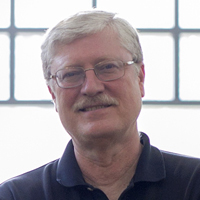

Bruce L. McCormack
Bruce Lindley McCormack is the Director of the Center for Barth Studies, Charles Hodge Professor of Systematic Theology at Princeton Theological Seminary, and the Project Director for the Translators Seminar. Bruce earned his Ph.D. from Princeton Theological Seminary in 1989. He also holds an M.Div. from Nazarene Theological Seminary and an honorary doctorate of theology from the Friedrich Schiller Universitat in Jena, Germany. A Presbyterian, Bruce is interested in the history of modern theology, from Schleiermacher and Hegel through Karl Barth. His courses cover Schleiermacher’s Glaubenslehre and the doctrine of atonement in Christian tradition. He is a member of the General Assembly committee commissioned to write a new catechism for the Presbyterian Church (USA) and has been a member of the panel on doctrine for the Church of Scotland. A member of the Karl Barth-Stiftung in Basel, Switerzland, he is North American editor of the Zeitschrift fuer Dialektische Theologie, published in Holland.
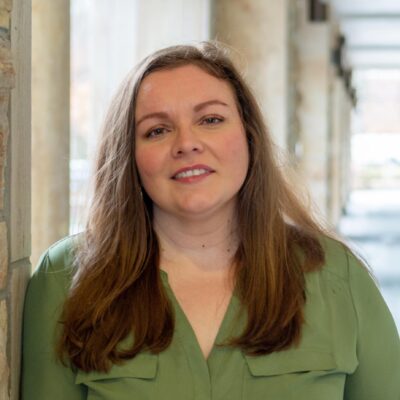
Kaitlyn Dugan

Kaitlyn Dugan
Kaitlyn Dugan is the Director of the Center for Barth Studies, which involves managing the daily operations, programs, and conferences of the center as well as curating, preserving, maintaining, and developing Princeton Theological Seminary’s Barth Special Research Collection. She is grant co-author for the $300,000 Scholarly Editions and Scholarly Translations grant awarded by the National Endowment for the Humanities to the Karl Barth Translator’s Seminar in 2019. Kaitlyn also serves as the Project Co-Director for the Translators Seminar. She earned a Bachelor of Arts in philosophy and political science from Taylor University, a Master of Arts in theology from Gordon-Conwell Theological Seminary, a Master of Divinity from Princeton Theological Seminary, and received her PhD in systematic theology from the University of Aberdeen in June 2022. Her dissertation research focuses on developing a constructive theological account of death informed by Pauline apocalyptic theology and is titled “The Enduring Enemy: Towards An Apocalyptic Theology of Death.” She is currently working towards publishing her dissertation. Kaitlyn is a member of St. James Presbyterian Church (PCUSA) in Harlem, New York City.
Check out her Twitter here: twitter.com/kaitdugan.
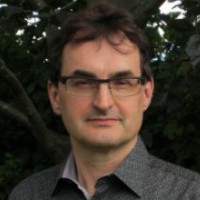
Matthias Gockel

Matthias Gockel
Matthias teaches Systematic Theology at the University of Basel, Switzerland, having previously taught at Friedrich-Schiller-University in Jena, Germany. He serves as the German-language Editor for the Translators Seminar. He studied theology, philosophy, and musicology and received his PhD from Princeton Theological Seminary. His dissertation was published (in revised form) as Barth and Schleiermacher on the Doctrine of Election: A Systematic-Theological Comparison (Oxford University Press, 2007). Matthias has published widely in systematic theology, the history of modern theology and culture, and ethics.
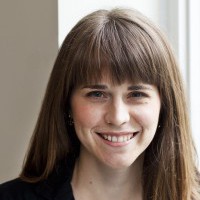
Cambria Kaltwasser

Cambria Kaltwasser
Cambria Kaltwasser is assistant professor of theology at Northwestern College, Iowa, where she teaches courses in historical and systematic theology. Cambria also serves as the Project Editor for the Translators Project, and her research examines the relationship between Barth’s covenantal theology and his account of human agency as responsibility before God. Her wider interests include theological anthropology and Christian hope. Kaltwasser is an ordained minister in the Presbyterian Church (USA).
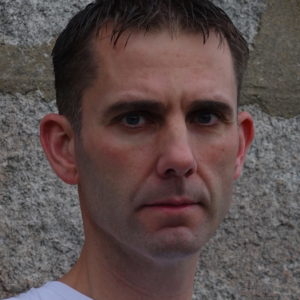
Paul Nimmo

Paul Nimmo
Paul Nimmo holds the King’s (1620) Chair of Systematic Theology at the University of Aberdeen, having previously held positions at the University of Cambridge and the University of Edinburgh. Paul serves as the English-language Editor for the Translators Seminar, and his own studies were undertaken in Cambridge, Edinburgh, Princeton, and Tübingen. His first monograph, Being in Action: The Theological Shape of Barth’s Ethical Vision, was awarded a John Templeton Award for Theological Promise, and he has since published Barth: A Guide for the Perplexed, and co-edited The Cambridge Companion to Reformed Theology and the Oxford Handbook of Karl Barth. He is the Senior Editor of International Journal of Systematic Theology, and a Translation Fellow at the Center for Barth Studies at Princeton Seminary. He is also a former co-Chair of the AAR Reformed Theology and History Group Steering Committee, and has served as the Treasurer of the Society for the Study of Theology. An ordained elder in the Church of Scotland, he participates actively in the life of the church at local and national levels, and is currently a member of the CPCE delegation for ecumenical dialogue with the Roman Catholic Church.

Clifford B. Anderson

Clifford B. Anderson
Clifford is the Director of the Divinity Library at Yale University. Previously, he served as Director of Digital Research at the Center of Theological Inquiry and Chief Digital Strategist at the Vanderbilt University Library. He holds an M.Div. from Harvard Divinity School and a Th.M. and Ph.D. in Theology from Princeton Theological Seminary. He also earned an M.S. in L.I.S. from the Pratt Institute. Anderson is co-editor (with Bruce L. McCormack) of two volumes on Karl Barth: Karl Barth and American Evangelicalism (Eerdmans, 2011) and Karl Barth and the Making of Evangelical Theology (Eerdmans, 2015). He is also the translator (with Dagmare Houniet) of Tjitze Kuiper’s Abraham Kuyper: An Annotated Bibliography, 1857–2010 (Brill, 2011).

Matthew Aragon Bruce

Matthew Aragon Bruce
Rev. Dr. Matthew James Aragon Bruce holds a PhD (in the History of Christian Doctrine) and a MDiv from Princeton Theological Seminary, and a MTh (in Theology in History) from the University of Edinburgh. His academic work focuses on the history of Christian thought with special attention to Reformed and ecumenical theology. He has previously taught at Princeton Theological Seminary, Princeton University, Lindenwood University, and Wheaton College (Illinois). Presently he works for the PC(USA), serving as the Grant Director for Synod of the Covenant’s Cultivating the Gift of Preaching Initiative, a lay preacher training program funded through the Lilly Endowment’s Compelling Preaching Initiative. He is also the Theologian-in-Residence at First Presbyterian Church in Grand Haven, Michigan. He frequently serves as an adjunct professor for Western Seminary, Calvin University’s Prison Initiative, and the Hope Western Prison Education program, teaching classes in Historical and Systematic Theology, Theological Ethics, Church History, and New Testament exegesis.
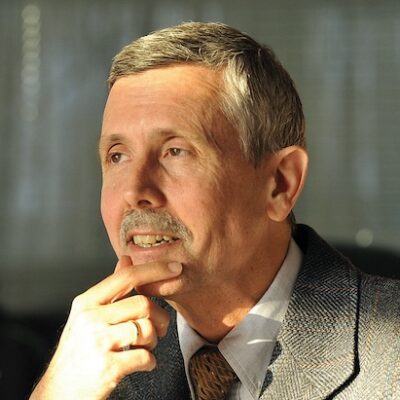
John Burgess

John Burgess
John P. Burgess (Ph.D., University of Chicago, 1986) is the James Henry Snowden Professor of Systematic Theology at Pittsburgh Theological Seminary. His publications include The East German Church and the End of Communism, Why Scripture Matters, Encounters with Orthodoxy, and Holy Rus’: The Renewal of Orthodoxy in the New Russia, and articles in professional journals and popular magazines. He is the translator of essays by Wolf Krötke, Karl Barth, and Dietrich Bonhoeffer: Theologians for a Post-Christian World. He has received fellowships from the Fulbright Program, the Henry Luce III Foundation, and the Center of Theological Inquiry in Princeton, New Jersey. He is working on a theological biography of the Evangelical seminary in communist East Berlin, where Eberhard Jüngel first taught.
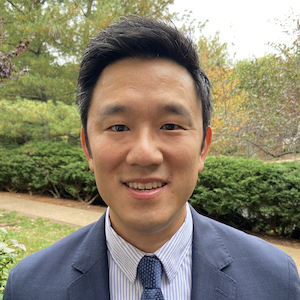
David C. Chao

David C. Chao
Dr. David C. Chao is the director of the Center for Asian American Christianity at Princeton Theological Seminary. He teaches courses on Asian American theology and organizes academic programming in Asian American theology and ministry. His research and writing focus on Asian American theology, the uses of Christian doctrine for liberation, the convergence and divergence of Protestant and Catholic dogmatics, and the theology of Karl Barth.
His first book, titled Concursus and Concept Use in Karl Barth’s Doctrine of Providence, is under contract with Routledge. He is grant co-author and project editor for the $300,000 translation grant awarded by the National Endowment for the Humanities to the Karl Barth Translator’s Seminar. He is co-leader of a $250,000 Henry Luce grant project titled “Religiously-Inspired Asian American Coalitional Justice Work.” He is principal investigator of a Louisville Institute-funded project titled “Stories of Faith, Resilience, and Politics: First-Generation East Asian American Christians.”
Chao is a graduate of Yale University (BA), Regent College (MDiv), and Princeton Theological Seminary (ThM, PhD). He is a member of the American Academy of Religion and the Association for Asian American Studies. Chao has a wide range of pastoral experience with Chinese American, Korean American, and Pan-Asian churches and ministries and is an active member of the Presbyterian Church (USA).
Read his article “Evangelical or Mainline? Doctrinal Similarity and Difference in Asian American Christianity: Sketching a Social-Practical Theory of Christian Doctrine” here. You can also check out “The 1517 Project and World Christianity: Migration and the Uses of Doctrine” here or download the free PDF version here. This paper was presented at the 2023 Asian American Theology Conference “Multiple Belongings in Transpacific Christianities: Christian Faith and Asian Migration to the US.”
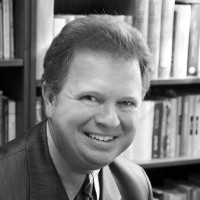
Terry Cross

Terry Cross
Terry L. Cross (PhD, Princeton Theological Seminary, 1991) is the Dean of the School of Theology & Ministry and Distinguished Professor of Systematic Theology at Lee University, Cleveland, TN. He has served as Dean for 23 years and has been a professor for 28 years. Prior to his tenure at Lee, Dr. Cross pastored churches in Ohio, New Jersey, and Connecticut. He is an ordained bishop with the Church of God (Cleveland, TN) and serves on its Doctrine & Polity Committee. Recently, he has written two books on ecclesiology published by Baker Academic: The People of God’s Presence: An Introduction to Ecclesiology (2018) and Serving the People of God’s Presence: A Theology of Ministry (2020). Since 2007, Dr. Cross has served as a Translation Fellow for the Center for Barth Studies at Princeton Theological Seminary. He is married to Linda and has one child, Tara, and two grandchildren.

Sven Ensminger

Sven Ensminger
Sven is originally from Germany. A graduate of the University of St Andrews, he received his Masters from Yale Divinity School before returning to the UK for his doctoral studies. His thesis, Karl Barth’s Theology as a Resource for a Christian Theology of Religions is published by T&T Clark/Bloomsbury. Sven is interested in the interdisciplinary study of theology, theological virtues, and what it means to be church in the contemporary world.

David Gilland

David Gilland
David has been Director of the Universities Studies Aboad Consortium (USAC) program in Lüneburg, Germany since 2022. He previously taught theology at the universities in Lüneburg and Braunschweig, Germany. He completed his doctorate in divinity at the University of Aberdeen in 2010. A revised version of David’s doctoral thesis was published by T&T Clark in 2013 as Law and Gospel in Emil Brunner’s Earlier Dialectical Theology, which traces Brunner’s earlier theological development and the build-up to his debate with Karl Barth on nature and grace in 1934. In addition to his work with the translators’ seminar, David is active as a writer and translator.
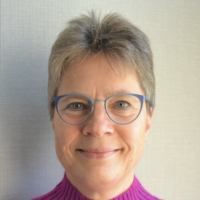
Anette Hagan

Anette Hagan
Anette Hagan, originally from Germany, is Rare Books Curator for Early Printed Collections to 1700 at the National Library of Scotland in Edinburgh. A graduate of the University of Mainz in English, Divinity and German, she also holds a PhD in English philology from the University of Edinburgh, published by Peter Lang under the title Urban Scots Dialect Writing in 2002; a postgraduate diploma in Library and Information Studies from Robert Gordon University, Aberdeen; and a MTh by research from New College, Edinburgh. Greatly extended, this was published by Wipf & Stock in the Princeton Theological Monograph Series in 2013 under the title Eternal Blessedness for All? A Historical Examination of Schleiermacher’s Understanding of Predestination.
Outside the field of book history, her interests revolve around the life and work of Friedrich Schleiermacher. She has co-edited two volumes of the Kritische Gesamtausgabe (IV 1+2, Schleiermacher’s translations of works in English) with Professor Günter Meckenstock and is currently transcribing David Friedrich Strauß’s notes of Schleiermacher’s lectures on the introduction to the New Testament.

Declan Kelly

Declan Kelly
Declan is originally from Galway, Ireland, and currently lives and works in Aberdeen. He was recently appointed as a Gifford Postdoc at the University of Aberdeen, and also serves as managing editor for the Cambridge Elements of Christian Doctrine He received his Masters from Queen’s University Belfast before moving to Aberdeen for his doctoral studies in 2015. A revised version of doctoral thesis was published in 2022 as The Defeat of Satan: Karl Barth’s Three-Agent Account of Salvation as part of the T&T Clark series “Explorations in Reformed Theology.” Declan is the author of numerous articles and book chapters, the latest of which is on dialectical theology for the T&T Clark Handbook of Modern Theology. His current research focuses on the doctrine of evil in Karl Barth’s early writings.

Oliver Keenan

Oliver Keenan
Dr Oliver Keenan is the Academic Dean and Lecturer in Christian Doctrine at Ripon College Cuddesdon, and a member of the Faculty of Theology and Religion at the University of Oxford. He is involved in the teaching and supervision of a range of topics in Christian doctrine and philosophical theology. Prior to this, he served as Director of the Aquinas Institute at Blackfriars Hall.
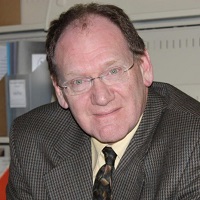
David MacLachlan

David MacLachlan
David MacLachlan is Associate Professor of New Testament at Atlantic School of Theology (AST) since July 1983 with specialties in the Revelation to John, the Apostle Paul, and early Church history. His research interests include biblical theology and Jewish-Christian dialogue. David was the Academic Dean at AST from 1998 to 2011. As a doctoral student under and research assistant to Dr. Markus Barth (1915–1994) at the University of Basel, he assisted Dr. Barth with the preparation of his volumes on Ephesians and Colossians in the Anchor Bible commentary series as well as the volume on Philemon in the Critical Eerdmans Commentary series. He is a member of the Canadian Society for Biblical Studies and has written several shorter book reviews in Studies in Religion. He wrote articles for the student handbook, Dictionary of the Bible and Western Culture from Sheffield Phoenix Press. With a deep interest in the use of the Bible in the church, David was a member of the United Church of Canada General Council Committee for Theology and Faith and chaired the Committee from 1988 to 1992. He participated in the development and writing of the 1992 UCC General Council report, The Authority and Interpretation of Scripture. He also sat on the committee that prepared the Canadian resources for the Week of Prayer for Christian Unity 2014 materials. David is presently working on a collection of essays on the Revelation to John and a special study on the theology of Israel in the Revelation. He is also translating Markus Barth’s book Die Taufe: ein Sakrament? into English.

Philip Miti

Philip Miti
Philip Miti is a doctoral candidate in systematic theology at the University of Heidelberg, Germany working on Karl Barth’s doctrine of the body and soul. He completed a masters in theological ethics at the University of Aberdeen, Scotland and currently resides in Berlin. Philip worked at the Bonhoeffer-Haus in Berlin and participated on the board (2017–2018). Alongside his research on Barth, Philip spent time as a junior research fellow in science-engaged theology at the University of St Andrews (2021–2022) working on “Embodied Cognition in Thomas Aquinas’ Anthropology” and “Play in the Christian Tradition & Contemporary Neurosciences,” funded by the John Templeton Foundation. He has published a number of reviews and has a forthcoming article on the allegorical interpretation of Song of Songs 1:5–6 in Origen, Ambrose, and Bernard of Clairvaux. Philip’s major areas of interests are the doctrine of God, the doctrine of Scripture, and psychology. He has previously enjoyed translating the Heidelberg Catechism into English, and he is currently working on a translation of Eduard Böhl’s Dogmatik with Richard McIntosh. In his spare time, Philip likes to run, bake, and play guitar. He is married to Katja, a theologian, and they have a toddler named Amos.

Patty Rich

Patty Rich
With a background in literature and language acquisition pedagogy, Patty has studied and taught on five continents. She has done academic, military, and commercial translations, including work for the History Channel and the World Council of Churches. One of her particular interests is paleography. Patty is a native of Pennsylvania, and she presently lives in Basel, Switzerland. She is married and the mother of three grown children. Patty is a candidate for ministry in the Swiss Reformed Church.
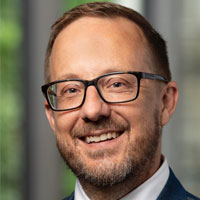
J. Ross Wagner

J. Ross Wagner
J. Ross Wagner (PhD, Duke University, 1999) is Associate Professor of New Testament at Duke Divinity School. Specializing in Paul’s letters and in Septuagint studies, he seeks to contribute to the recovery of theological exegesis through careful investigation of the ways scriptural interpretation shaped early Jewish and Christian communities. His publications include Heralds of the Good News: Paul and Isaiah in Concert in the Letter to the Romans (2002), Between Gospel and Election: Explorations in the Interpretation of Romans 9–11 (coedited with Florian Wilk, 2010), and Reading the Sealed Book: Old Greek Isaiah and the Problem of Septuagint Hermeneutics (2013). Wagner has been a Humboldt Research Fellow at the Georg-August-Universität in Göttingen, Germany, and a member in residence at the Center of Theological Inquiry in Princeton. He is currently at work on a book-length study exploring the impact of Isaiah’s oracles on Christian exegetes of the first five centuries CE.
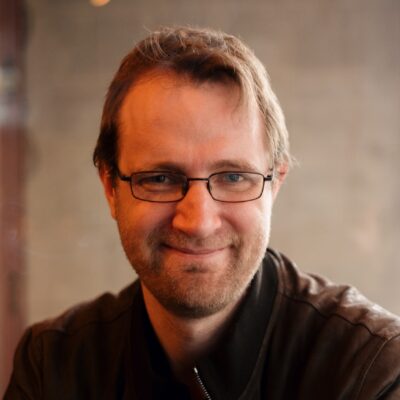
Brandon K. Watson

Brandon K. Watson
Brandon K. Watson is currently the Academic Assistant at the Chair of Systematic Theology at the University of Münster, Germany, where he teaches courses on hermeneutics, contemporary philosophy of religion, and systematic theology. He completed both an M.Div. and an M.A. from Princeton Theological Seminary, USA in 2018 and shortly thereafter moved to Germany with his wife and (then) one kid. In 2022, he completed his Ph.D. (Dr. theol.) at the University of Heidelberg, Germany (under the supervision of Prof. Dr. Friederike Nüssel). He is the author of Karl Barth on Faith: A Systematic Exploration (DeGruyter 2024), in which he explores the development of the doctrine of faith in Barth’s theology. The work specifically treats how Barth’s threefold dialectic of revelation can also be worked out in Barth’s mature understanding of faith presented in his doctrine of reconciliation, i.e., understood from within material dogmatics. In addition to his work and interest in twentieth-century philosophy and theology, having co-edited a volume on Paul Lehmann with Nancy Duff and Ry Siggelkow (Lexington 2022), he has translated several essays in journals, chapters in books, and one monograph, Markus Mühling, Post-Systematic Theology II: The Trinitarian Adventure of Love – Ecological Ways of Creation, Humaning, and its Displacement (Brill 2024). Brandon is currently writing a post-doctoral thesis (Habilitationsschrift) on “Metaphor, Narrative, and Divine Contingency.” He is also working on an English translation of Hartmut von Sass, Gott als Ereignis des Seins: Versuch einer hermeneutischen Onto-Theologie, and a collection of essays by Eberhard Jüngel. Outside of academics, you can find Brandon either spending time with his wife and (now two) kids or somewhere trail running in the mountains.

Ross McGowan Wright

Ross McGowan Wright
Ross McGowan Wright is the Rector of the Church of the Good Shepherd (Episcopal), in Richmond, Virginia and teaches at Randolph-Macon College (Ashland, Virginia) and the Baptist Theological Seminary at Richmond. He is the translator of Barth’s Lectures on Ephesians (Baker Academic, 2017) and author of “Some Reflections on Translating and Analyzing Karl Barth’s Ephesians Lectures,” Letter from the Karl Barth-Archives (2009). He holds a BA in English from Davidson College (1976), including a year at the Faculté des Lettres, University of Montpellier, France; a MDiv. from Trinity Episcopal School for Ministry, Ambridge, Pennsylvania (1981), a ThM in Systematic Theology from Princeton Theological Seminary (2003), and a PhD in Systematic Theology from the University of St. Andrews, Scotland (2007), where he was awarded a Russell Trust Grant for Academic Research for work at the Karl Barth Archives in Basel, Switzerland. He is fellow oftheSchool of Theology, University of the South, Sewanee, Tennessee (2009) and was designated a Scholar of Promise by the Episcopal Church Foundation (2005). In addition to his pastoral work, teaching, and research, he is a free-lance trombonist and plays with groups throughout the Richmond area, including the Richmond Pops Band, the University of Richmond Symphony, and the orchestras for Lee Playhouse and Swift Creek Mill Theatre. He has been married to Lynda Wornom Wright since 1985, and they have three sons.

